Faith and Politics
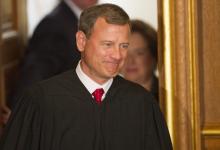
In 2009, during the debate over health care, I devoted a good deal of my time arguing in favor of President Obama’s efforts to provide some form of universal health care to the people of the United States. I argued that universal health care is a human right. I argued that providing a way for people to get medical care without the worry of going bankrupt or of having to be shackled to a job because they or someone in their family needs health care is a matter of establishing justice in our country. It is a matter of distributive justice.
In the Supreme Court decision upheld the Affordable Care Act (ACA a.k.a. Obamacare) Chief Justice John Glover Roberts, Jr., writing for the majority of the court, in effect said that the act is constitutional because Congress has the power of taxation. He quotes Benjamin Franklin: “Our Constitution is now established . . .but in this world nothing can be said to be certain, except death and taxes.”
Opponents of the ACA argued that the individual mandate that requires people to buy health insurance was unconstitutional. They argued that it was an overreach of governmental power to require someone to buy something. Supporters of the ACA argued that the individual mandate was constitutional under the powers granted to Congress under the commerce clause and because Congress has the power of taxation. The penalty imposed on people who do not buy health insurance will be collected by the IRS when a person files h/er income taxes. The penalty or tax only applies to people who can afford to buy health insurance but who choose to not buy it.
The chief justice’s opinion does not judge the morality of the law. Roberts does not speak of the Universal Declaration of Human Rights and the goals it sets for the entire human community, including universal health care. He does not speak of the concepts of liberty and justice for all, that the government has an obligation to its citizens to make health care something that is available to all.
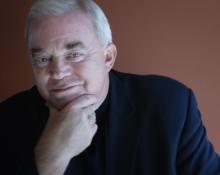
Today, in a long and complicated ruling, the U.S. Supreme Court upheld the Affordable Care Act. This is an important victory for millions of uninsured people in our country and ultimately a triumph of the common good. Children, young adults, and families will have access to basic health care, adding security and stability to their lives.
While I believe the decision is reason to celebrate, it doesn’t mean that this legislation is somehow the flawless will of God; it is an important step in expanding health care coverage and reducing long term costs, but it still is not perfect and more work is yet to be done.
Many Christian organizations and people of faith were involved in advocating for expanded insurance coverage, specifically for low-income and vulnerable people. And that’s what we can never forget: our involvement in the world of politics is always based in and motivated by the way that it affects the lives of real people, and especially poor people.
This last week, I’ve watched the endless political pre-coverage of the Supreme Court decision, and I was struck first by the poor quality of the questions being asked. Now that the decision has been made, the pontification is just as bad. We need to be focused on those who are left out and left behind, not who is up or down in politics and the polls.
The Atlantic provides some insights into its recent American Values Survey, conducted in conjunction with The Aspen Institute:
"Americans say they are more tolerant and open-minded than their parents. Among the issues that rate more morally acceptable today than a decade ago: homosexuality, human cloning, pre-marital sex, and having a child out of wedlock. At the same time, half believe the economic system is unfair to middle- and working-class Americans, and only 17 percent believe Wall Street executives share fundamental American values. In all, two-thirds think the country is heading in the wrong direction, 69 percent believe the country's values have deteriorated since the 1970s, and nearly half say values will further weaken over the next 10 years."
Read more and see the results charted here
Stephen Mansfield writes for The Huffington Post:
T"here are other matters that may drive religion to the forefront of the 2012 presidential election. We cannot be certain of all of them now. What Americans ought to know by this time in their history, though, is that religion is seldom far from their politics, seldom much removed from American culture as a whole. The 2012 campaign is likely to illustrate this as much as any presidential election in the nation's history."
Read the author's full list of the key religious issues in the election here
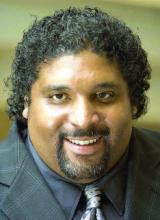
The better way says, if we follow God’s religious values we can use global technology, green economy, and targeted economic and infrastructure investment, total access to education, and creative job creation strategies to address the ugly realities of poverty. If we follow the enduring ethic of love we can beat our swords of racism into the plows that will till the new soil of brotherhood and sisterhood
If we see the poor as our neighbors, if we remember we are our brother’s keeper, then we shall put the poor, rather than the wealthy, at the center of our agenda.
If we hold on to God’s values, the sick shall have good health care. The environment shall be protected. The injustices of our judicial systems shall be made just. We shall respect the dignity of all people. We can love all people. We can see all people as God’s creations.
We can use our resources to develop our minds and economy, rather than build bombs, missiles, and weapons of human destruction.
Do we want to keep pressing toward God’s vision? Values are once again the question of our times.
Do we want a just, wholesome society, or do we want to go backwards? This is the question before us. And I believe that at this festival there is still somebody who wants what God wants. Somebody who understands there are some things with God that never change
There are still some prophetic people that have not bowed, who as a matter of faith know that Love is better than hate. Hope is better than despair. Community is better than division.
Peace is better than war. Good of the whole is better than whims of a few. God wants everybody — red, yellow, black, brown and white taken care of. God wants true community, more togetherness … not more separateness. God wants justice, always has, always will.
Because with God some things never change.
The Observer newspaper in the UK published extracts from Archbishop of Canterbury, Rowan Williams' new book:
An outspoken supporter of a planned mosque that has sparked opposition in Murfreesboro, Tenn., has switched sides and joined the anti-Islam movement.
Eric Allen Bell, a documentary filmmaker, was a fixture at court hearings and protests over the Islamic Center of Murfreesboro in 2010. Back then, he was making a movie called Not Welcome, which depicted mosque critics as Southern Christian bigots.
Now he says the mosque is part of a plot to destroy America. He claimed the mosque is "built on a foundation of lies" in a recent op-ed piece at the anti-Islam site Jihadwatch.com.
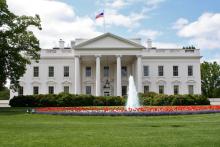
Nearly one in five Americans say they would not vote for a Mormon president, a percentage that has hardly budged since 1967, according to a new Gallup poll.
It is unclear how the anti-Mormon bias will affect Mitt Romney, the presumed GOP presidential nominee, Gallup said, since just 57 percent of Americans know that he is a member of the Church of Jesus Christ of Latter-day Saints.
“This suggests the possibility that as Romney's faith becomes better known this summer and fall, it could become more of a negative factor,” Gallup writes, “given that those who resist the idea of a Mormon president will in theory become more likely to realize that Romney is a Mormon as the campaign unfolds.”
On June 20, Nuns on the Bus reached Rep. Paul Ryan's Wisconsin office. Nuns on the Bus, a cross-country bus tour of sisters sponsored by NETWORK, hopes to protest the House Republican budget that drastically cuts safety net programs and disproportionately targets the poor. Sister Simone Campbell, executive director of NETWORK, spoke outside of Ryan's office in Janesville, Wis., following a meeting with his staff.
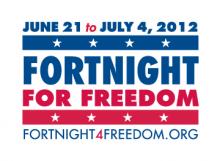
On June 21, Catholics across the country will amplify what is an already loud outcry from the hierarchy over the federal government's so-called contraception mandate.
With rallies, marches, lectures and special publications, the U.S. Catholic Bishop's Fortnight for Freedom campaign will seek to galvanize Catholic opposition to President Obama's proposed mandate to require employers — including religious institutions — to provide free contraception insurance coverage to employees.
But while Catholic leaders frame the events as a fight for religious liberty, critics see signs of political partisanship and electioneering. Questions over the financing of the bishops' campaign have caused those suspicions to multiply.
"The activities around the Fortnight for Freedom cost money," said Steve Schneck, director of the Institute for Policy Research & Catholic Studies at the Catholic University of America in Washington. "What groups are paying for this, and what's the accountability for that money?"
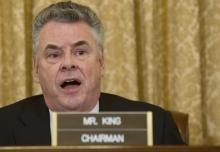
House lawmakers split along party lines at a hearing on June 20 meant to gauge Muslim responses to earlier hearings on the “radicalization” of American Muslims.
Testimony by four witnesses was overshadowed by Republicans who defended the four prior hearings and Democrats who questioned whether they were misguided or actually harmful to Muslim Americans.
Short on new data but long on rhetoric, lawmakers argued both sides of the same statistics and relied heavily on anecdotes.
“The overwhelming majority of Muslim Americans are outstanding Americans, yet the reality is that the Islamist terror threat comes from the community,” said Rep. Peter King, R-N.Y., who chairs the House Committee on Homeland Security.
Breaking news this afternoon –
"A House panel voted Wednesday to hold Attorney General Eric H. Holder Jr. in contempt for failing to cooperate with a congressional inquiry into Operation “Fast and Furious,” hours after President Obama asserted executive privilege over related documents. On a party-line decision, the House Oversight and Government Reform Committee voted 23 to 17 to hold Holder in contempt for failing to share documents related to the operation run out of the Phoenix division of the Bureau of Alcohol, Tobacco, Firearms and Explosives between 2009 and 2011, with the backing of the U.S. attorney in Phoenix. The move makes Holder the first member of Obama’s Cabinet held in contempt by a congressional committee."
Columnist Al Kamen wonders why Holder should be concerned about the vote
"While he would be the first Obama administration official to undergo such a vote, he would be joining a long list of well-known officials from prior administrations who lost committee — or even full House or Senate — contempt votes, including two former attorneys general, according to a list compiled by the Congressional Research Service last month."
It’s also not the first time a President has invoked executive privilege to prevent Congress from getting internal administration information, just another round in the perpetual White House vs. Congress struggle.

The first time I met John Edwards was in the summer of 1997. He was in Charlotte “for a little case we have in Mecklenburg” and called and said he wanted to talk with me. The year before, I won the Democratic Primary for Congress in the 9th District, and he wanted to tell me of his plans to become the next United States senator from North Carolina in the 1998 election.
We got together on a humid mid-afternoon in the restaurant of a SouthPark hotel, and for about 90 minutes — from start to finish — he listened as articulately as he spoke. He asked broad, open-ended questions but with a focused clarity. He didn’t dodge a single question of mine, answering softly but with a direct intensity that I could not perceive as anything less than absolute sincerity.
At the end of the discussion, he graciously accepted my explanation that, despite my eager willingness to share any thoughts and insights he might find helpful, my support (for whatever it was worth) was going to my long-time friend D.G. Martin.
The young senator: A rising star
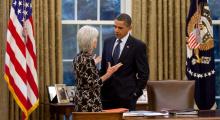
In an unexpected blow to the Obama administration and a major boon for America's Catholic bishops, the influential Catholic Health Association on June 15 rejected White House proposals aimed at easing faith-based objections to the contraception mandate.
“The more we learn, the more it appears that the … approaches for both insured and self-insured plans would be unduly cumbersome and would be unlikely to adequately meet the religious liberty concerns of all of our members and other Church ministries,” Sister Carol Keehan and leaders of the CHA said in a five-page response to the Department of Health and Human Services.

“Middle class” is the chemical weapon of political warfare. We know applying the “middle class” label broadly works and can help us win in the short term. But those victories come at a cost to who we are … and tend to result in long-term (and not insignificant) casualties for those we are supposedly fighting to defend.
Republicans are the Party of the Rich. Democrats now fashion themselves the Party of the “Middle Class.” Can anyone think of a group left with no champion? Here’s a hint: 20 percent of Americans with a full-time job are getting paid so little that--even with both parents working full time—their family of four is still living in poverty. But when’s the last time you heard a Democratic politician even mention the word “poor?"
NPR reports that Michigan state representative Lisa Brown was not allowed speak on other legislation yesterday after she made a speech against a bill restricting abortion in which she used the word "vagina." A Republican spokesperson said Brown had violated the "decorum of the House."
"Brown called a press conference, today," the Detroit Free Press reports. "She defended her use of the word "vagina," saying it is the "anatomically medically correct term."
"If they are going to legislate my anatomy, I see no reason why I cannot mention it," she said according to the Free Press.
"Regardless of their reasoning, this is a violation of my First Amendment rights and directly impedes my ability to serve the people who elected me into office," Brown added in a statement released by her office.
Read more here
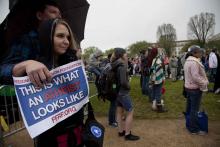
How much money does the U.S. government forgo by not taxing religious institutions? According to a University of Tampa professor, perhaps as much as $71 billion a year.
Ryan Cragun, an assistant professor of sociology, and two students examined U.S. tax laws to estimate the total cost of tax exemptions for religious institutions — on property, donations, business enterprises, capital gains and “parsonage allowances,” which permit clergy to deduct housing costs.
Their article appears in the current issue of Free Inquiry magazine, published by the Council for Secular Humanism, an organization of nontheists. U.S. tax law grants religious groups and other nonprofits the exemptions because of their charitable nature.
And while the authors do not claim theirs is a comprehensive or unbiased appraisal, their findings have raised eyebrows in the nontheist community, which has long sought to eliminate the tax exemptions on the grounds that they unfairly favor religious institutions.
Florida’s governor instituted a law requiring that new voter registration papers had to be turned in within 48 hours of being written. The reason, they say, is to cut down on the amount of voter registration fraud.
John Oliver takes an investigative look into this case, and the results end with a giant pool party.
via The Daily Show
Paul Froese offers some interesting insights for Religion & Politics:
Perhaps it is the fervent individualism of American Christianity which makes free market capitalism seem like a Divine mandate. Because evangelicals assert that you alone are responsible for your eternal salvation, it makes sense that the individual is also responsible for his or her economic salvation without government assistance, especially if God is the only assistance you really need.
On the CNN Belief Blog, Dan Merica reports: